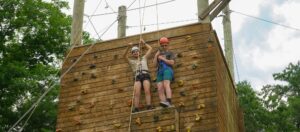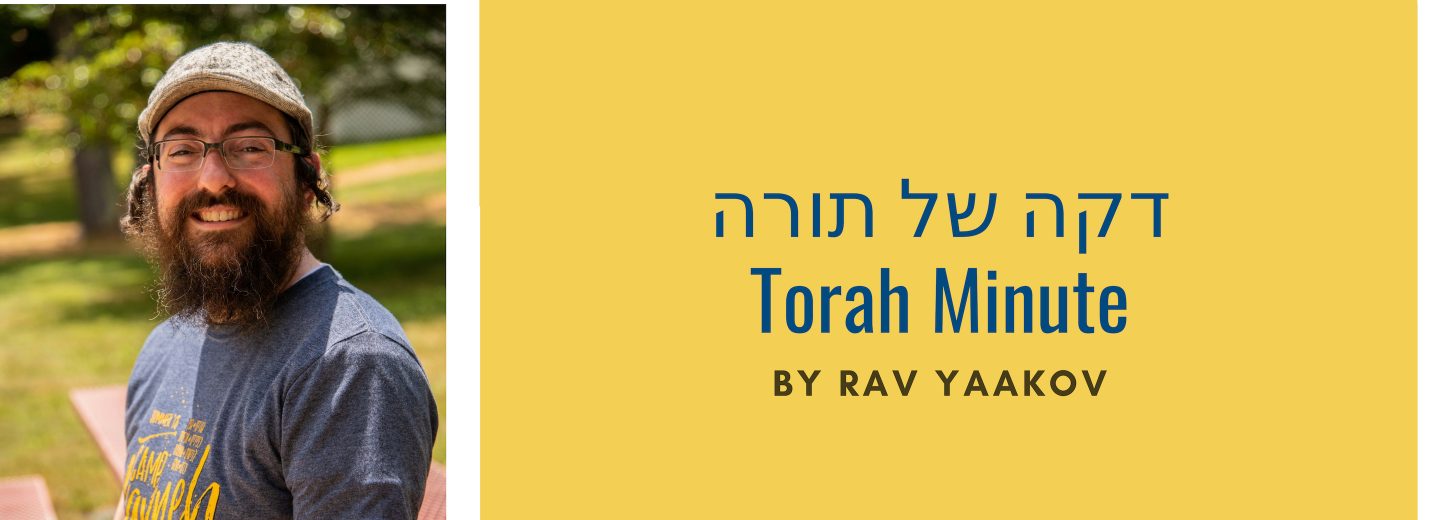What’s in a Name?
A powerful thing happens in this week’s parsha, an event that reverberates throughout the rest of the Torah and the life of Yaakov. Yaakov and his family, his entire camp, are on the eve of coming face-to-face with his brother Esav. Yaakov hasn’t seen Esav since he took his birthright blessing and fled decades ago. He has no idea if this meeting will be a loving reunion or a war. All he knows is that Esav has 400 men with him. So Yaakov prepares — he sends gifts to Esav to mollify him. He separates his family into two camps so that at least one could flee if another was attacked. And he davens.
That night Yaakov is left alone in the camp, and then it happens. A strange man-like figure appears in the night, and begins to wrestle with him. Yaakov has no idea who this man is, indeed what he is, or what he wants. They wrestle until the day breaks, at which point the man sees that he can’t win, and touches the upper joint of Yaakov’s thigh, dislocating it. Yaakov loosens his grip in pain, and the man moves to escape. He begs to be let go, but Yaakov demands that the mysterious figure give him a blessing. The figure asks Yaakov what his name is, and then renames him Yisrael, “for you have wrestled with the divine and human beings, and have prevailed.” Yisrael thus means “one who wrestles with God,” and at the same time, the roots of the word, Yashar-el, means “one who walks rightly with God.” Then the man, refusing to reveal his own identity, flees. Yaakov renames the place Peniel, “for I have seen the face of God, and survived.”
The commentators differ on who exactly this mysterious figure was, but they generally agree that he was a malach, a divine messenger of God. Whoever he was, he was able to see into Yaakov’s essence, and give him a new name that represented his future, not his past. Yaakov was named after the root “ekev,” heel, as he came out of the womb holding onto the heel of Esav, his older twin. This name represented the past of a man who was trying to carve out an identity distinct from that of Esav. And what is this identity? One who lives with a Divine paradox.
As we learned last week, a central motif in Yaakov’s life is things not being what they seem. The ultimate example of this is human beings themselves — we are both souls and bodies, made from both dust of the earth and the breath of God. To live most authentically is to engage this duality, by wrestling with God and walking with God at the same time. When we do, we live into our essence, our true identity. It is for this reason that Yaakov’s new name becomes synonymous with the Jewish people, and with our homeland.
Questions for the Shabbat table:
- If you could pick your own new name that expressed who you aspire to be, what would that name be? Don’t tell anyone – yet. Pick another person at the table, someone you know well; what do you think their name would be?
- Go around the table and share your own “chosen” name and the name you thought of for your friend/family member. Did anything surprise you? Did you learn something new about someone else, or about yourself?




